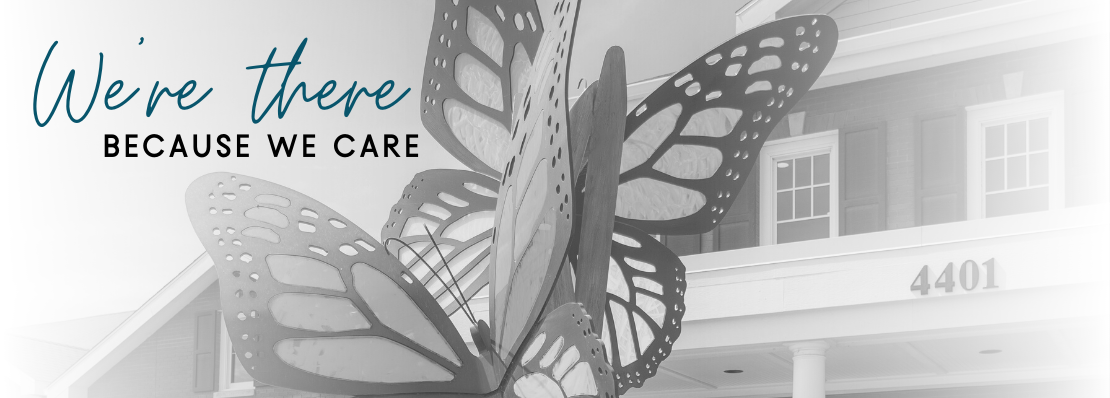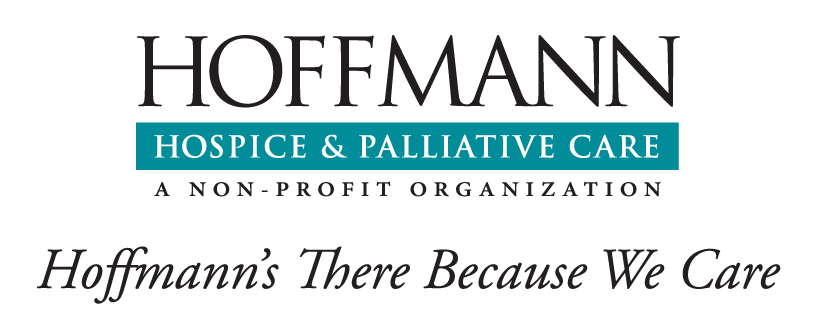FAQs
General Questions
Hospice is appropriate when the doctor believes that the remaining life span is measured in months instead of years and when the patient is ready to move from curative treatments to care that focuses on comfort and symptom relief. Diagnoses can include Heart Disease, Pulmonary/Lung Disease, Kidney Disease, Liver Disease, Stroke/Coma, Dementia/Alzheimer’s, ALS, Cancer or HIV. Pediatric diagnoses can include Heart Disease, Central Nervous System abnormalities, Chromosomal Abnormalities, Respiratory Failure, Kidney or Liver Disease, Cancer and HIV.
This is one of the biggest myths of hospice care, one we struggle with all the time. Hospice care is much more effective, for both the patient and the family, if services are started sooner rather than later. The day a terminally ill patient and their family choose comfort care at home, over curative care in a hospital, Hoffmann Hospice will be there.
Anyone can make the first call; however, a physician must approve hospice care for the patient.
The decision to discontinue medications and treatments are made on a case-by-case basis and depend on patient need and stage of the disease.
No it’s not. Patients do not need to have a DNR order signed at the time of enrollment into a hospice program.
When a patient shows signs of recovery and receive an extended prognosis, they may be discharged from hospice services. At Hoffmann Hospice, the patient is captain of the ship and may revoke hospice services at any time to seek curative care.
Hospice is covered by Medicare and Medi-Cal, and most private insurances carry a hospice benefit. Hoffmann Hospice can assist you and your family in determining whether or not hospice services are covered. As a non-profit, Hoffmann Hospice provides care regardless of a patient’s ability to pay.
As an independent, community-based non-profit hospice, Hoffmann Hospice accepts eligible hospice patients, regardless of their ability to pay, based on the availability of funds donated by individuals, businesses and foundations in the community.
Not necessarily. Hospice patients may go to the emergency room to seek care for an injury or condition not related to their hospice diagnosis. For example, if a patient has a terminal diagnosis of cancer, but falls and breaks an arm, the patient may absolutely go to the ER for treatment of the broken arm. But if that same patient goes to the ER to seek treatment for the cancer, then, yes, the patient revokes hospice service. Remember, hospice care steps in when a cure is no longer realistic and the patient has decided they no longer wish to pursue curative measures.
We completely understand your concern, and we have recognized this need in families already served. Hoffmann Hospice has implemented a wonderful service called the Buddy Brigade. Hoffmann Hospice patients, who have children or siblings in the home, are immediately connected with a volunteer where they will have special time that they can call their own and engage in activities that they enjoy in the comfort of their home. These activities can range from playing a board game, outdoor activities or just hanging out watching TV. This program is offered through our Volunteer Department which includes specialized training and extensive background checks. Hoffmann Hospice’s goal has always been to support the entire family in addition to the patient.
No, it won’t. Hoffmann Hospice is committed to guiding our families through the end-of-life process, especially their grief, for up to 13 months after the death of their loved one. We keep in close touch with our families, contacting them monthly and providing one-on-one support when necessary. Our families also have access to Hoffmann’s well-stocked bereavement resource library and are invited to special events throughout year, including our holiday grief support luncheon, our Christmas ornament decorating party and, of course, our weekly support group meetings for adults and children. Our families are as important to us as our patients and it shows in our bereavement program.
Personalities and life experiences influence the way each of us deals with grief. Each person’s style of grieving must be respected so, in this sense, there is no right or wrong way to grieve. Generally, however, the amount of support a person receives can lessen the impact of grief and facilitate recovery. That is why we highly recommend our weekly grief support group meetings, which are open to the public.
Not at all. Hospice care teams go where our patients live – their private residence, skilled nursing facilities, residential care facilities, board and care homes, hotels or motels. We have even cared for a patient living in a motor home at the Kern County Fair. When you’re on service with Hoffmann, we’ll meet you wherever you call home.
We offer comfort for the patient and peace of mind for the family beyond what you might expect. When the resident of a skilled nursing facility begins to decline and he or she desires comfort care rather than hospitalization or aggressive treatment, Hoffmann staff specializes in managing that comfort and enhancing the care provided by facility staff.
Indefinitely. Our patients may continue to receive hospice care as long as they meet hospice criteria. Once on service, they are evaluated on a regular basis by our team of medical professionals. Whenever removing a patient from hospice care is a possibility, patients and their families are always involved in the decision. There is never a rush. In fact, some of our patients have been with us for months.
How are we funded?
Hoffmann’s services are funded, in part, by Medicare, Medi-Cal, and commercial insurance reimbursements.
Donations to Hoffmann Hospice support the following services:
- Patient and family care
- Medical equipment and supplies
- Ambulance transport
- Medications
- Other needs that may not be covered by Medicare or insurance
At Hoffmann Hospice, our goal is never to deny care to those in need. Every donation is deeply appreciated and supports the non-profit work of servicing the terminally ill and their families.
Additional issues for consideration include:
The individual or representative must sign a consent form electing to participate in the Hospice program.
The patient’s home environment must be reasonably safe, conducive to Hospice care and free from risk to staff life or health. Risks may include animals that bite, guns, excessive drinking or infestation. It is at the discretion of the healthcare professional to determine if the home is a safe environment for practice. Non-compliance may be considered a cause for termination of service.
The individual must live within the areas of served by Hoffmann Hospice. Please reach out through our Contact page for more information about Service Areas.

